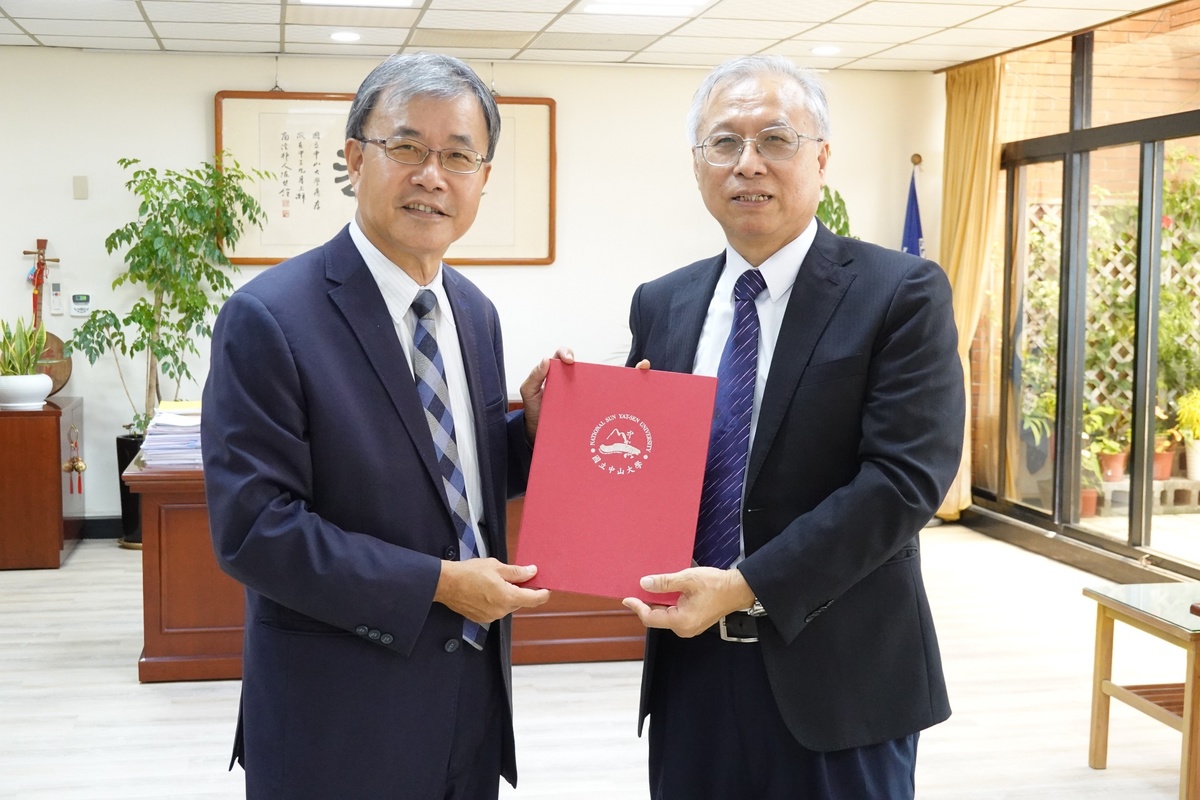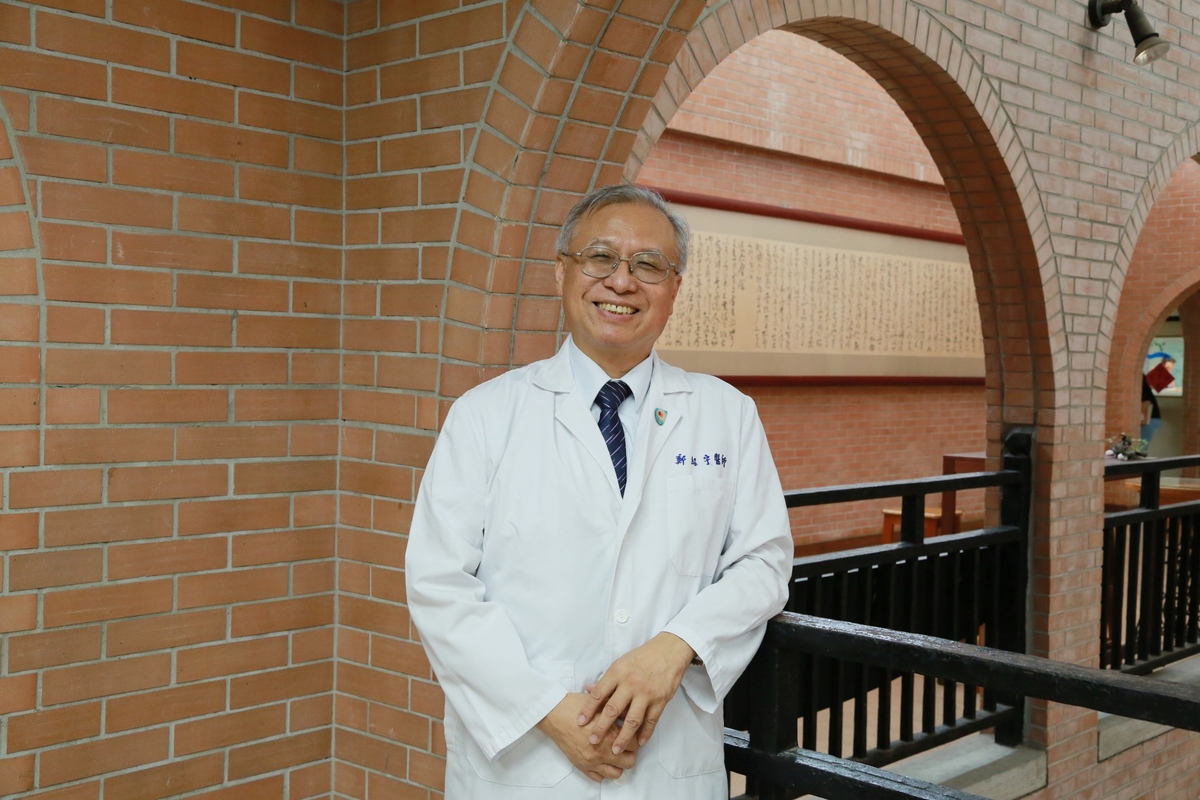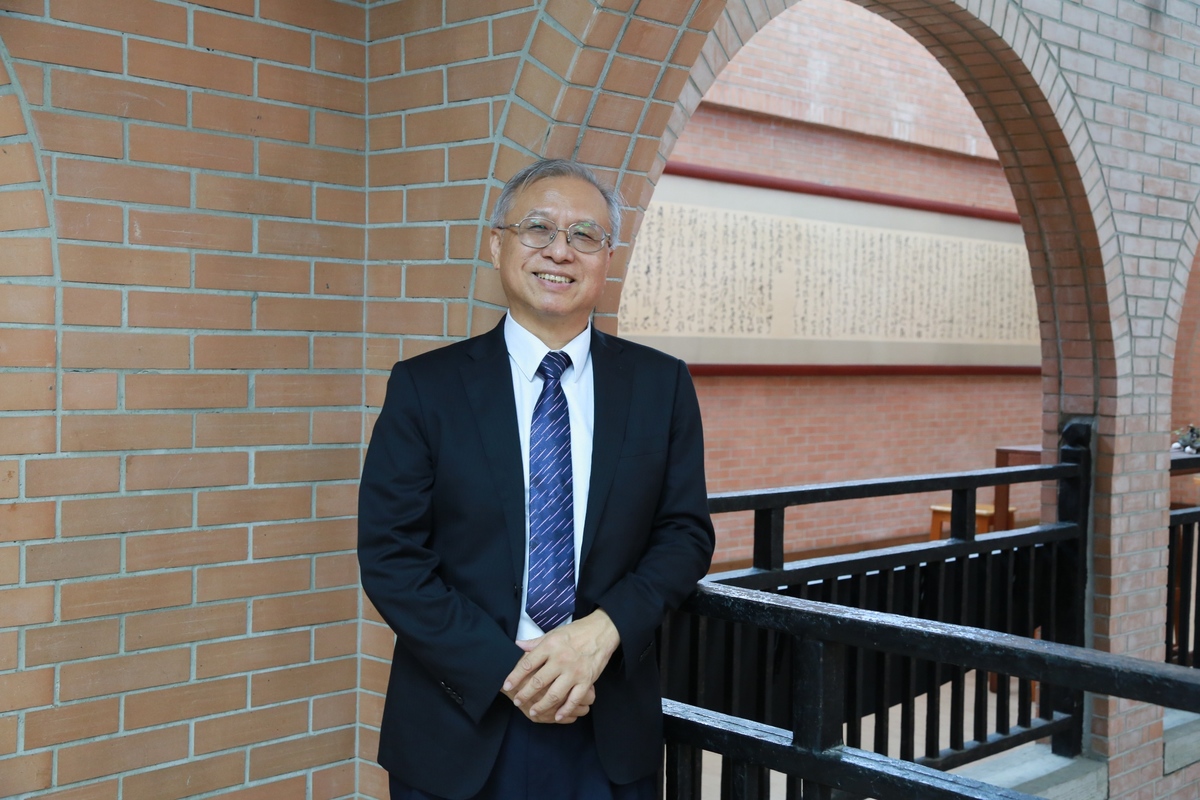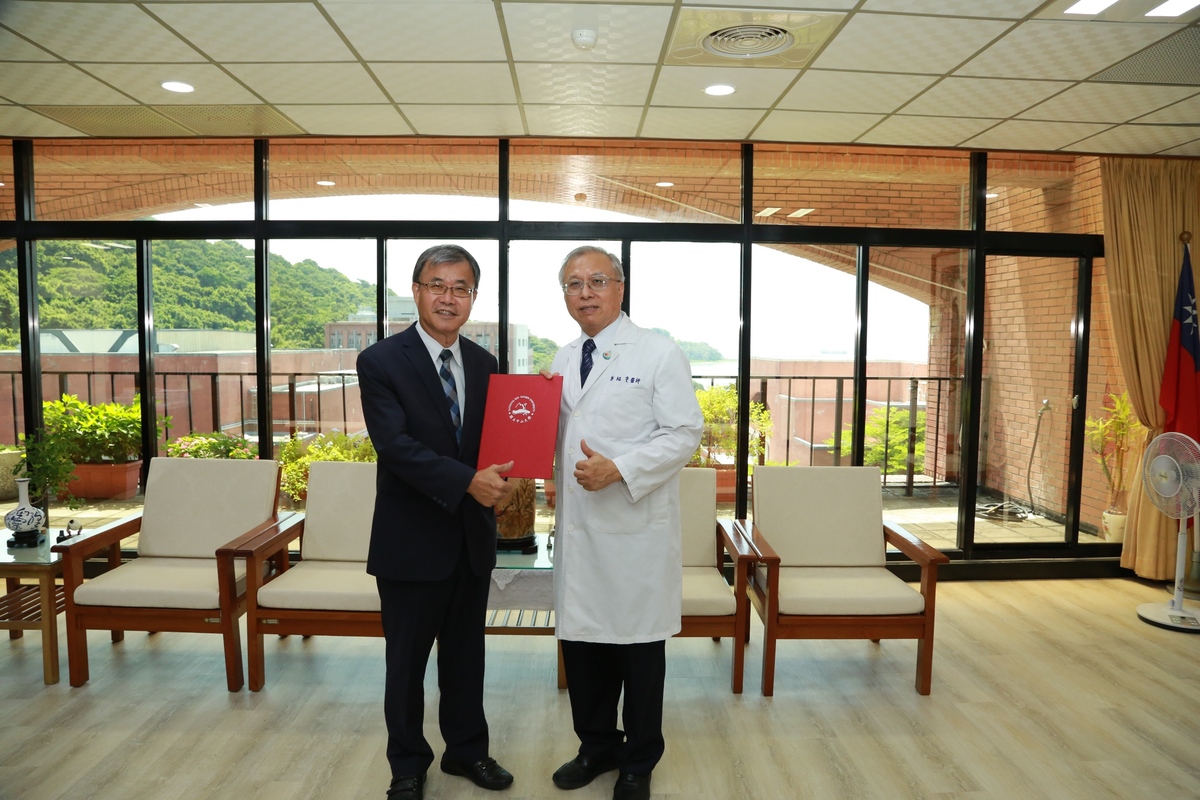NSYSU employs former Vice Superintendent of Kaohsiung Veterans General Hospital Shaw-Yeu Jeng as Director of Provisional Office of NSYSU School of Post-Baccalaureate Medicine




National Sun Yat-sen University is preparing to establish the College of Medicine. Besides tying an alliance with the Kaohsiung Veterans General Hospital to act as the main teaching hospital, the University employed Shaw-Yeu Jeng, the former Vice Superintendent of the Kaohsiung Veterans General Hospital as the Director of the Provisional Office of the School of Post-Baccalaureate. Jeng has more than 40 years of experience in the medical field, was involved in clinical teaching and research, diagnosis, and treatment on every tier of the healthcare system (including medical centers), and has contributed significantly to the development of healthcare in rural areas. With the University’s newest technologies for medical research, he will establish a friendly public-financed healthcare environment, cultivating medical professionals with literacy both in technology and humanities, willing to contribute to social well-being and balance out the healthcare resources in rural areas and outer islands.
University President Ying-Yao Cheng emphasized that according to the website of National Statistics of the Republic of China, in 2017 there was an average of 8.28 medical professionals per km2 in Taiwan. In the Taipei area, there was an average of 42.89 medical professionals per km2, while only 4.93 in the Kaohsiung-Pingtung-Penghu-Taitung area; this proves the unequal distribution of medical resources between the north and south of Taiwan. “Poor healthcare should not be the fate of people living in rural areas”. Director of the Provisional Office of the School of Post-Baccalaureate Medicine Shaw-Yeu Jeng pointed out that Taiwan lacks a system of support for public-financed medical students; many medical professionals leave rural areas as soon as their contract expires. He believes that this is a structural problem, and individuals cannot be blamed. Together with the faculty team of the School of Post-Baccalaureate Medicine, he plans to establish a friendly environment for public-financed medical professionals by organizing volunteer service programs in rural areas for the students to assist the community healthcare and serve there after graduation; having gained sufficient clinical experience, the graduates can return to the medical center to pursue a higher degree, also abroad, to then share the results of their medical research with the center and the university and support fellow medical professionals in rural areas.
Director Shaw-Yeu Jeng had previously been the Superintendent of the Su’Ao and Yuanshan branches of Taipei Veterans General Hospital, and the Chiayi and Wanqiao Branch of of Taichung Veterans General Hospital. As the Vice Superintendent of the KVGH – the only public medical center in southern Taiwan, he demonstrated outstanding management performance. Together with his team, he enhanced the healthcare quality by improving the operation of the hospital, from its structure and processes to the final output. These achievements were recognized with KVGH gaining the highest overall result and winning the 2019 National Healthcare Quality Award and the Health Smart Taiwan mark of the Joint Commission of Taiwan. In August this year, Jeng was elected as the president of the Taiwan Healthcare Quality Association. These achievements prove his excellent contribution to improving healthcare quality in Taiwan.
“We cannot wait with providing quality medical education”. Dr. Jeng said that having spent more than half of his life in medicine, both in the north and south of Taiwan, urban and rural areas, he discovered that what the healthcare in Taiwan needs most is “kindness” because a doctor does not only have to treat diseases, but also show care. Honesty and altruism are vital for healthcare. As somebody who grew up in a village, he is deeply aware of the disparities between resources in rural and urban areas, and thus decided to become a doctor and wanted to one day provide healthcare to the village residents. He hopes to instill the values of civil society in his students and make them feel proud of serving in rural areas.
Dr. Jeng shared a memory about his patient from several years ago. Although the healthcare system in Taiwan was already very advanced at that time, a fisherman from Su’Ao, who suffered an accident at work, tried to cure his wound by applying on it a mixture of Seirogan and eye drops; his wound healed properly only with Jeng organized a first aid training and distributed first aid kits. Jeng established an emergency medical service station to guarantee the safety of farmers and visitors in Yuanshan in Yilan County, a village with scarce healthcare resources and very popular among tourists. He emphasized that a doctor needs to adapt methods to local circumstances and care for one’s patients like for own family members. In the future, together with the faculty team of the School of Post-Baccalaureate Medicine, he hopes to connect with the global trends in medical education, carefully recruit students, and provide the most advanced equipment and innovative medical education to cultivate medical professionals for the rural areas in Taiwan.
University President Ying-Yao Cheng emphasized that according to the website of National Statistics of the Republic of China, in 2017 there was an average of 8.28 medical professionals per km2 in Taiwan. In the Taipei area, there was an average of 42.89 medical professionals per km2, while only 4.93 in the Kaohsiung-Pingtung-Penghu-Taitung area; this proves the unequal distribution of medical resources between the north and south of Taiwan. “Poor healthcare should not be the fate of people living in rural areas”. Director of the Provisional Office of the School of Post-Baccalaureate Medicine Shaw-Yeu Jeng pointed out that Taiwan lacks a system of support for public-financed medical students; many medical professionals leave rural areas as soon as their contract expires. He believes that this is a structural problem, and individuals cannot be blamed. Together with the faculty team of the School of Post-Baccalaureate Medicine, he plans to establish a friendly environment for public-financed medical professionals by organizing volunteer service programs in rural areas for the students to assist the community healthcare and serve there after graduation; having gained sufficient clinical experience, the graduates can return to the medical center to pursue a higher degree, also abroad, to then share the results of their medical research with the center and the university and support fellow medical professionals in rural areas.
Director Shaw-Yeu Jeng had previously been the Superintendent of the Su’Ao and Yuanshan branches of Taipei Veterans General Hospital, and the Chiayi and Wanqiao Branch of of Taichung Veterans General Hospital. As the Vice Superintendent of the KVGH – the only public medical center in southern Taiwan, he demonstrated outstanding management performance. Together with his team, he enhanced the healthcare quality by improving the operation of the hospital, from its structure and processes to the final output. These achievements were recognized with KVGH gaining the highest overall result and winning the 2019 National Healthcare Quality Award and the Health Smart Taiwan mark of the Joint Commission of Taiwan. In August this year, Jeng was elected as the president of the Taiwan Healthcare Quality Association. These achievements prove his excellent contribution to improving healthcare quality in Taiwan.
“We cannot wait with providing quality medical education”. Dr. Jeng said that having spent more than half of his life in medicine, both in the north and south of Taiwan, urban and rural areas, he discovered that what the healthcare in Taiwan needs most is “kindness” because a doctor does not only have to treat diseases, but also show care. Honesty and altruism are vital for healthcare. As somebody who grew up in a village, he is deeply aware of the disparities between resources in rural and urban areas, and thus decided to become a doctor and wanted to one day provide healthcare to the village residents. He hopes to instill the values of civil society in his students and make them feel proud of serving in rural areas.
Dr. Jeng shared a memory about his patient from several years ago. Although the healthcare system in Taiwan was already very advanced at that time, a fisherman from Su’Ao, who suffered an accident at work, tried to cure his wound by applying on it a mixture of Seirogan and eye drops; his wound healed properly only with Jeng organized a first aid training and distributed first aid kits. Jeng established an emergency medical service station to guarantee the safety of farmers and visitors in Yuanshan in Yilan County, a village with scarce healthcare resources and very popular among tourists. He emphasized that a doctor needs to adapt methods to local circumstances and care for one’s patients like for own family members. In the future, together with the faculty team of the School of Post-Baccalaureate Medicine, he hopes to connect with the global trends in medical education, carefully recruit students, and provide the most advanced equipment and innovative medical education to cultivate medical professionals for the rural areas in Taiwan.
Click Num:
Share
